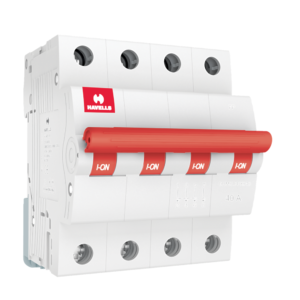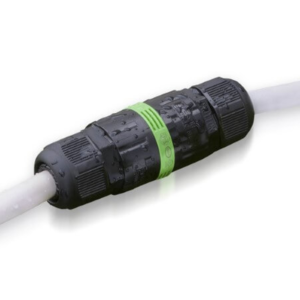🚚 Fast Delivery | ⭐ Best Quality | 📞 24/7 Support
+971 2 552 3918
info@coolwaybm.com
- Power Tools & Machinery
- Fire and Safety Equipement
Fire and Safety Equipement
- Adhesives
- Plumbing & Sanitary
- Packing Materials
Packing Materials
- Abrasives
- Carpentry
- Welding Accessories
Welding Accessories
- Fasteners
- Lock & Furniture Accessories
Lock & Furniture Accessories
- A/C Refrigeration
- Electrical
Electrical

د.إ1.00
You can add any HTML here
We suggest you to create a Saved Template in Dashboard -> Templates -> Saved Templates and use it by switching content type above to Saved template.
Waterproof connectors are specially designed to maintain reliable electrical connections in environments that may be exposed to moisture, water, or harsh weather conditions. These connectors are crucial for applications where standard connectors would be vulnerable to corrosion, short-circuiting, or damage due to exposure to water, such as outdoor lighting, marine applications, or agricultural systems.
Waterproof connectors are built with sealed designs, typically incorporating rubber gaskets or o-rings, to create a watertight seal around the connection. This prevents water from infiltrating the connector and causing electrical faults or degradation of the components. They are constructed from corrosion-resistant materials such as stainless steel, brass, or plastic, which are designed to withstand the harsh effects of moisture, saltwater, and extreme temperatures.
These connectors are often used in environments such as outdoor electrical systems, boats, farming equipment, and security systems that may be exposed to rain or water splashes. IP (Ingress Protection) ratings are used to classify waterproof connectors based on their ability to resist water ingress, with higher ratings offering greater protection. For example, IP67 connectors are completely dust-tight and can withstand temporary immersion in water, making them suitable for outdoor or submerged installations.
Choosing the right waterproof connector depends on the specific environmental conditions and the required level of waterproofing. They are widely available in different sizes, types, and configurations, including plug-in, screw, and push-fit designs, making them versatile for various installations.
In summary, waterproof connectors are indispensable for ensuring that electrical systems in moisture-prone areas remain safe, functional, and efficient. Their durability, waterproofing features, and ease of use make them a key component in reliable electrical systems.
There is £4.99 charge for delivery under £50 Orders. Additional charges will be imposed by our couriers for delivery to remote area, a surcharge may be levied to cover carriage to these areas.
Waterproof Connector
د.إ1.00
Short Description:
- Waterproof connectors are electrical connectors designed to provide safe connections in environments exposed to moisture or water.
- Used in outdoor applications or wet areas to prevent corrosion and ensure reliable performance.
- Typically feature rubber seals or gaskets for enhanced water resistance.
Waterproof connectors are specially designed to maintain reliable electrical connections in environments that may be exposed to moisture, water, or harsh weather conditions. These connectors are crucial for applications where standard connectors would be vulnerable to corrosion, short-circuiting, or damage due to exposure to water, such as outdoor lighting, marine applications, or agricultural systems.
Waterproof connectors are built with sealed designs, typically incorporating rubber gaskets or o-rings, to create a watertight seal around the connection. This prevents water from infiltrating the connector and causing electrical faults or degradation of the components. They are constructed from corrosion-resistant materials such as stainless steel, brass, or plastic, which are designed to withstand the harsh effects of moisture, saltwater, and extreme temperatures.
These connectors are often used in environments such as outdoor electrical systems, boats, farming equipment, and security systems that may be exposed to rain or water splashes. IP (Ingress Protection) ratings are used to classify waterproof connectors based on their ability to resist water ingress, with higher ratings offering greater protection. For example, IP67 connectors are completely dust-tight and can withstand temporary immersion in water, making them suitable for outdoor or submerged installations.
Choosing the right waterproof connector depends on the specific environmental conditions and the required level of waterproofing. They are widely available in different sizes, types, and configurations, including plug-in, screw, and push-fit designs, making them versatile for various installations.
In summary, waterproof connectors are indispensable for ensuring that electrical systems in moisture-prone areas remain safe, functional, and efficient. Their durability, waterproofing features, and ease of use make them a key component in reliable electrical systems.
There is £4.99 charge for delivery under £50 Orders. Additional charges will be imposed by our couriers for delivery to remote area, a surcharge may be levied to cover carriage to these areas.
Reviews
There are no reviews yet.
Buy more save more!
Buy from 2 to 4 items and get 10% OFF
on each productBuy from 5 to 8 items and get 15% OFF
on each product- Free shipping on all orders above 50,00
- No hassle returns, 30 days return
- Next day delivery within your country











Reviews
There are no reviews yet.